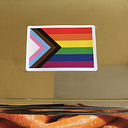Member-only story
Talking of Fat Rights, Is Your Citation Ethical?
I’m a dietitian which means that I belong to a profession whose discourse constructs fat people as inherently unentitled to exist. In mainstream dietetics, a fat person is deemed always in need of our ‘expert’ input to stop being as, and therefore who, they are. Seriously, it’s beyond outrageous.
Fixed in location as a ‘health risk’ there’s no room for agentic, fabulous, ordinary fat people outside this ‘lazy, pitiable, dead-tomorrow, selfish’ framing. Already this is a territory where I need to think again about what I’ve gone along with. Think about how it might feel as a fat person to read — again — a litany of the twisted fear and hate of the non-fat. Ask who is served by this, who and whose agenda am I writing for?
Fat phobic dietetic discourse is a material factor damaging people’s lives notwithstanding any good intent and the efforts some of us are making to change things.
I was educated into toxic ignorance. Since recognising fat stereotypes for what they are I developed a health-justice approach called Well Now that rejects fat hate and works to undo the systems and structures that support it.
It was because of Well Now that I was recently contacted by a PhD candidate about her proposal for a weight and health research study. The proposal divided participants into two arms…
